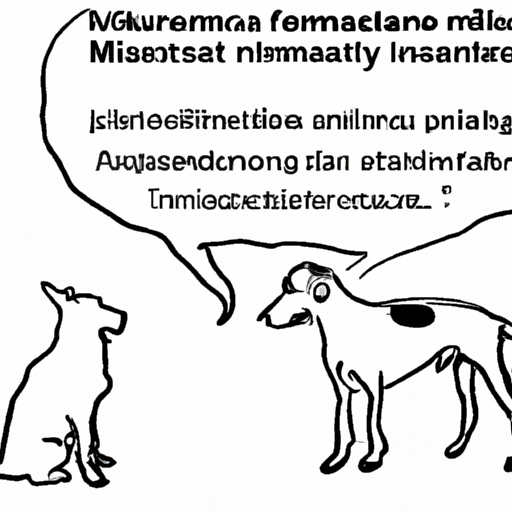Mastitis — an inflammation of the mammary glands — is not only exclusive to pregnant or nursing dogs. It can also affect dogs that are not pregnant. This condition can be painful and life-threatening if not addressed immediately. But how exactly do you treat mastitis in dogs not pregnant? This guide will walk you through the process.
Understanding Mastitis
Mastitis is usually associated with nursing dogs, but non-pregnant dogs can also be affected. It’s caused by a bacterial infection that inflames the mammary glands. This condition can be painful for your pet and needs to be treated as soon as possible. Symptoms include:
- Swollen, red, or warm mammary glands
- Visible discomfort or pain
- Loss of appetite
- Lethargy
Consulting a Veterinarian
Your first step should always be to consult a veterinarian. They will conduct a physical examination to confirm the diagnosis and may also take a sample of the dog’s milk or discharge for further testing.
Your vet will recommend the best course of treatment based on the severity of the mastitis. This could be:
- Antibiotics
- Pain relief medication
- Warm compresses and gentle massage
Home Care and Management
In addition to the medical treatment, there are several steps you can take at home to help your dog.
- Keep the area clean: Regularly clean the affected mammary glands with warm water and a mild antiseptic soap. This will help to reduce the risk of further infection.
- Apply warm compresses: This can help to reduce swelling and discomfort. Apply a warm (not hot) compress to the affected area for 15 minutes, several times a day.
- Encourage your dog to rest: Rest is crucial for recovery. Make sure your dog has a comfortable, quiet place to rest and recuperate.
Prevention of Mastitis
Preventing mastitis is better than treating it. Here are few tips:
- Regularly check your dog’s mammary glands for signs of infection.
- Keep your dog’s living area clean to reduce the risk of bacterial infection.
- If your dog is overweight, encourage regular exercise and a healthy diet to reduce the risk of mammary gland issues.
Frequently Asked Questions
Q: Can mastitis be prevented?
A: Yes, by regularly checking your dog’s mammary glands and keeping their living area clean.
Q: How long does it take for a dog to recover from mastitis?
A: Recovery time can vary, but with proper treatment, most dogs will start to improve within a few days.
Q: Is mastitis in dogs contagious?
A: No, mastitis is not contagious.
Q: Do I need to take my dog to the vet for mastitis?
A: Yes, it’s important to seek veterinary advice if you suspect your dog has mastitis.
Remember, your dog relies on you for their wellbeing. With your compassion and care, and the right guidance from a veterinarian, mastitis can be effectively managed and your dog can recover fully.



